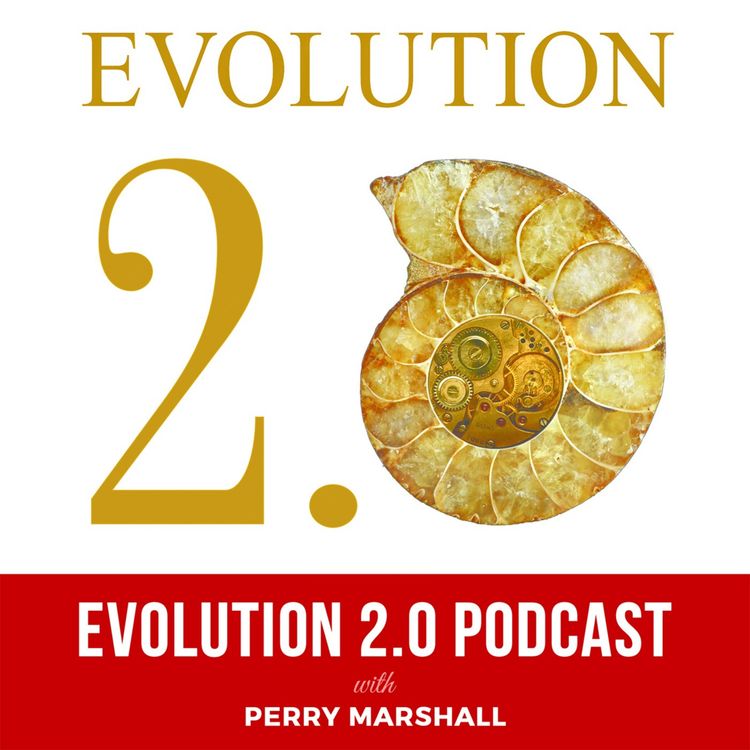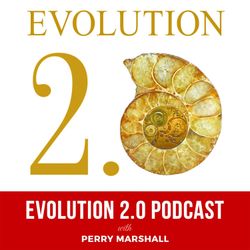Share

Evolution 2.0
334 years after Isaac Newton: The Stuart Kauffman Revolution
Einstein’s theory of relativity overturned Newtonian physics in the early
1900s. Nevertheless, “Newtonian” thinking has remained firmly entrenched in
science. Certainly, all scientists now agree that at the subatomic level and at
near light speed, quantum physics overtakes Newtonian physics. But this
has had very little effect on biology and has done nothing to overturn the
“reductionist” view of science, which says that everything is merely the sum
of its parts and all can be modeled by mathematics.
Stuart Kauffman and computer scientist Andrea Roli have written a new
paper that proves evolving biology in principle cannot be reduced to
computation. This is as devastating to materialistic science as Gödel’s
Incompleteness Theorem was to mathematics. In fact, it is equivalent -
because it shows that evolving organisms embody incompleteness.
Induction, not a deduction. And induction cannot come from deduction;
therefore biology is not strictly computational.
Thus Kauffman and Roli have pulled the rug out from under ultra-traditional
views of physics. (Not everyone is going to be happy about this.) Here, Perry
Marshall and Stuart Kauffman jazz improvise on the vast implications of this
new, holistic view of the universe.
You can read their paper “The World is Not a Theorem” at
https://tinyurl.com/stuartkauffman
More episodes
View all episodes

There Are No Equal Signs in Biology
01:48:41|Jay Cross interviews me about my new paper, The Reasonable Ineffectiveness of Mathematics in the Biological Sciences (co-authored with Sy Garte and Stuart Kauffman.) Together we explore why “there are no equal signs in biology,” how this revelation redefines medicine as we know it, and the post-computational, post-permission future of healing—with new hope for people facing serious health challenges. Jay is an accomplished direct response copywriter and researcher with great interest in the “third transition” in science, and this conversation opens that up in a big way.
Thin Places: Where the space between this world and the next is thinner
01:09:46|Perry describes a series of life-changing "thin place" experiences that shifted his reality. This was presented to Adam Safron's Sapience group, followed by a guided meditation and a Q&A at the end. A further expansion on these ideas is online at perrymarshall.com/ireland.
Beyond Evolution: Purposeful Biology Isn't Just For Christians Anymore
52:29|Sy Garte's book, Beyond Evolution, is written for the person who is trying to reconcile their deep yearnings for meaning and significance with the longstanding scientific dogma that nature has no purpose. Not only is the tide shifting dramatically inside of secular science, the new discoveries are connecting gaps between the many factions and divisions within the religious world.Sy GarteEmail: sygarte@gmail.com [mailto:sygarte@gmail.com]Website: https://sygarte.com/Substack: https://sygarte.substack.com/Pre-order Beyond Evolution on Amazon [https://www.amazon.com/Beyond-Evolution-Discoveries-Science-Point/dp/B0DJY6PY7H]
Bridging Evolution: A Conversation Between Intelligent Design and Third Way
46:19|What happens when researchers from competing scientific worldviews sit down for an honest conversation? In this dialogue, three thinkers—exploring Neo-Darwinism,Third Way evolution, and Intelligent Design—discover unexpected common ground while respecting disagreements. Denis Noble (Oxford University, Third Way evolution, www.thethirdwayofevolution.com), Casey Luskin (Discovery Institute, Intelligent Design, www.evolutionnews.org), and Perry Marshall (Evolution 2.0, bridge-builder, www.evo2.org) engage in the kind of scientific discourse that's increasingly rare: genuine curiosity about opposing viewpoints without the usual academic tribalism.A Third Way evolutionist who challenges both Neo-Darwinian orthodoxy AND Intelligent Design assumptionsAn ID theorist who genuinely appreciates criticisms of mainstream evolutionary theoryDiscoveries of shared ground where opponents thought none existedHonest wrestling with profound questions about consciousness, agency, and the nature of life itselfThis isn't just another evolution debate. It's a case study in how scientists engage across ideological divides to advance understanding. The most profound insights often emerge not from echo chambers, but from healthy tension between opposing ideas. "We don't substitute any certainties whatsoever... let it evolve. Let us find out, let us, for God's sake, be open to what it might be that we discover."Denis Noble Transcript: https://evo2.org/wp-content/uploads/2025/07/Bridging-Evolution-A-Conversation-Between-Intelligent-Design-and-Third-Way-transcript.pdf
What does it mean to truly flourish?
46:19|Andrew Briggs started to write the book Human Flourishing just before COVID and then the world went mad. Since then, the world has gotten even madder and many people are clutching their smartphones, wringing their hands, managing their anxiety, or merely existing. What does it mean to flourish and what do people, relationships, and professions look like and feel like when they flourish? In this book, authors Andrew Briggs and Michael J. Reiss and painter Roger Wagner weave together a beautiful picture of the material and immaterial, the concrete and the spiritual. Included here is a reproduction of Roger Wagner's painting It Keeps Me Seeking. The original painting hangs in The Auckland Project Faith Museum: https://aucklandproject.org/attraction/faith-museum/
When A Christian Insists On A Spiritual Demilitarized Zone
45:17|Derek Dearden from the UK and Perry Marshall discuss how to hold deeply held beliefs while also making space for people with widely differing views.
Life doesn’t merely obey rules. Life CREATES them.
50:28|Tim Howard interviews me and Sy Garte about our new paper with Stuart Kauffman, The Reasonable Ineffectiveness of Mathematics in the Biological Sciences. Join us for a fascinating discussion about a new revolution underfoot in biology:
New Theory & Practice for Cancer – Azra Raza and Michael Levin
59:03|Two of my favorite scientists, Michael Levin and Azra Raza with Aastha Jain Simes, put their heads together in this provocative and touching interview. Azra describes the technology of our new company PredictRX that detects cancer at Stage Negative One.We do this with a “Stentinel,” (starts at 15 minutes in) a stent with electronic sensors that is implanted in the arm and sense Polyploid Giant Cancer Cells (PGCCs) within 18 days of appearing in a patient.Azra begins with an unusual definition of cancer and offers a detailed theory of Hybrid Cells based on her 35 years treating patients. This is a heart-gripping conversation. “If you find a single giant cell in a patient who’s in remission, a 2nd cancer is inevitable.”
Donna Meyers is STILL beating cancer after 35 years
01:05:20|She's 86, yet she looks like she's in her 60s. After 35 years of Myelodysplastic Syndrome, she is still beating the odds every day. In our conversation, she explains her radical outlook and her success under the watchful eye of oncologist Dr. Azra Raza at Columbia University in New York City. To learn more about Azra's work, visit www.reversingcancer.org or contact John Correll jon@reversingcancer.org.